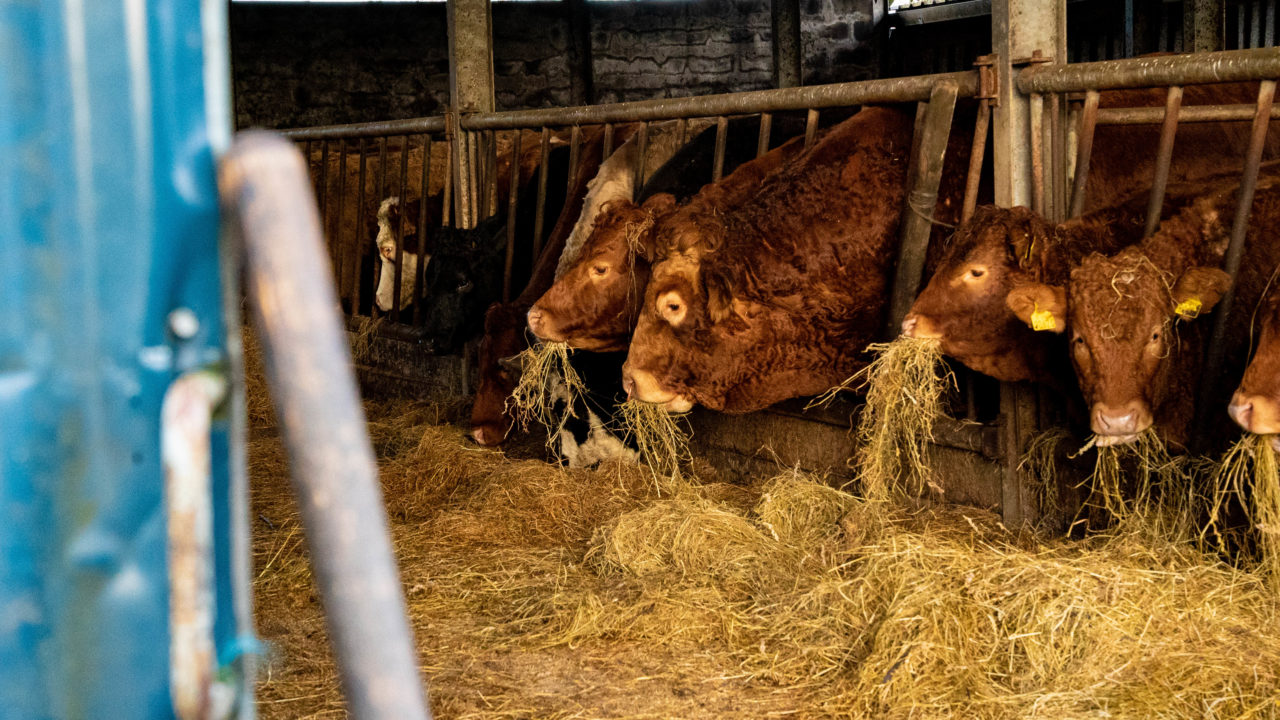Meat Industry Ireland (MII) has said that it cannot accept the Food Vision Beef and Sheep Group report which was published yesterday (Wednesday, November 30).
The body, which represents the meat processing sector, said that €1.5 billion will be lost from the rural economy if proposed plans contained in the report to reduce suckler cow numbers go ahead.
The report made a number of recommendations aiming to reduce emissions from the beef sector, including two schemes that would reduce the size of the national suckler herd.
These measures are a voluntary diversification scheme, which would entail the complete removal of suckler cows from a farm; and a voluntary extensification scheme, which would entail a reduction in the number of suckler cows on a farm.
MII said it continues to hold concerns over these proposals, and therefore it (and its member processors) cannot accept the report, a stance shared with most of the main farming organisations.
MII had been one of the stakeholders involved in the Food Vision Beef and Sheep Group.
The representative body said that scientific and technological developments “in the pipeline” will deliver emissions reduction targets.
In a statement this morning, MII said: “Despite commitments given by the government that there is no risk to a stable herd, the inclusion of measures aimed at incentivising a reduction in the suckler cow herd will compromise the economic contribution and viability of the beef sector.
“MII estimates that the level of reduction proposed, together with the naturally occurring long-run decline, will significantly undermine the industry and wipe almost €1.5 billion from the Irish economy.”
MII quoted figures from the US-based Food and Agricultural Policy Research Institute (FAPRI) which, in a projection for Ireland’s sucker herd size, said that there would be a natural decline in the size of the suckler herd here at a rate of 3% per year until 2030, which MII said would achieve, in the same period, the scale of removal modelled in yesterday’s report.
According to the processor representative body, the measures contained in the report would lead to a permanent loss of 20% of Ireland’s beef output, equivalent to a beef export loss of €700 million annually; as well as the closure of processing facilities, resulting in direct and indirect job losses of 6,500.
Furthermore, MII predicts that 14,500 farmers would exit the sector, leading to “reduced economic activity in rural areas to the tune of an additional €800 million”.
“Instead of the exit schemes proposed, MII believes that investment should be concentrated on accelerating the overall reduction in emissions from the national herd through science-based measures such as early finishing, genetics, [and] genotyping of animals,” MII added.
It also called for the incentivisation of specific measures in the Teagasc Marginal Abatement Cost Curve (MACC) to support farm-level adoption of these scientific measures.
“Scientific developments in breeding lower-emitting animals and feed additives offer promising alternatives to achieving overall emission reduction targets rather than removal schemes,” the Ibec body said.
MII also said that a reduction in Irish beef production would result in increased EU imports of “higher emissions intensity” beef from the Mercosur bloc of South American countries, as a time when the European Commission “is aiming to deliver a 55% cut in GHG [greenhouse gas emissions] relative to 1990 levels”.
“MII members remain committed to working with stakeholders across the sector to assist in the transition to a low-carbon economy, while enhancing our already strong reputation as one of the most sustainable producers of beef internationally,” the statement added.
